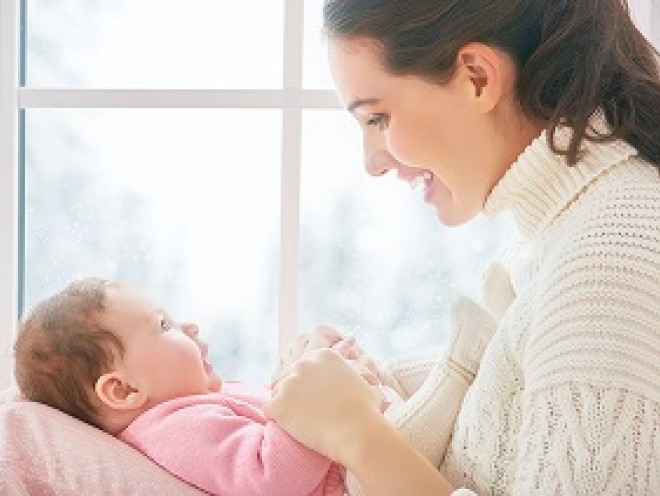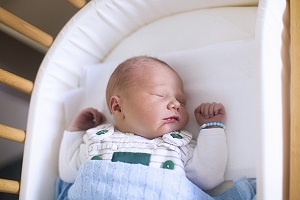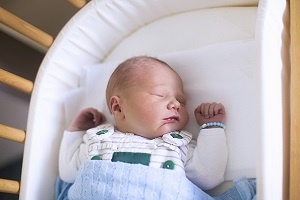Are we fully responsible for our child’s personality and does what we do have much effect on it? Here Professor Angelica Ronald discusses evidence on nature versus nurture...
Blank slate or all in the genes?
In the past, children were viewed as ‘blank slates’ (Pinker, 2016). The common view was that parents could 'mould' their child’s development through their actions. And this idea actually put a lot of pressure on parents. It suggested that any decision, whether good or bad, small or large, would shape their child.
We now know that children are not blank slates to be moulded by us. Their genetic makeup influences all aspects of their behaviour and personality (Knopik et al, 2017). Starting from when they were first conceived, how a child develops and behaves is partly influenced by the genes they inherit.
On the other hand, genes are not completely in control of a child’s destiny – no behavioural or personality traits are 100% heritable (Polderman et al, 2015). Genes give children a tendency towards certain ways of being, such as their sleeping behaviour or personality. But they also need an environment in which these genetic influences can play a role.
Both nature and nurture
Parenting does play an important role, just not in the way we originally believed. Nature and nurture both play a role. How we act as parents as well as our child’s genes are strongly intertwined (Duncan, 2014).
Each child responds to parenting in different ways. We know that children bring out different responses from their caregivers, partly as a result of their genetic makeup. This is called evocative gene-environment correlation (Plomin and Bergeman, 1991).
Children will also seek out environments that suit their genetic background. This process is known as active gene–environment correlation (Plomin and Bergeman, 1991).
Why does it matter?
Information on how nature and nurture intertwine to influence children’s development can support families in several ways. As parents, it’s easy to take credit or to blame ourselves for every aspect of our children’s behaviour. Yet we cannot completely control a child’s development because part of it is influenced by the genes in their cells (Feero et al, 2010). Realising this can help put our role as parents into perspective and respect our child as an individual.
The difference between siblings
Understanding the joint roles of nature and nurture also helps us to understand why siblings are sometimes very different from one another (Plomin and Daniels, 2011). Siblings with the same mum and dad only share half of the genetic influences affecting their development. As such, siblings have a partly different genetic makeup, and this is one reason for sibling differences.
Siblings sometimes evoke different reactions from their parents. A parenting style might work for one child but not for another. Siblings might choose different environments to one another and show different tastes in toys, people, eating and napping habits, despite being raised by the same people.
Nature and nurture also help us understand why things run in families. This could be a behaviour like being very active, or a sleep pattern like needing less or more sleep than others. Research on genetic influences in infancy is still at an earlier stage than similar research on older age groups though (Papageorgiou and Ronald, 2017).
If genes play a role, can I still help my child?
Yes, you can. Many things are partly down to our genes but this doesn't mean they can’t be supported or addressed through our environment. For example, sleep problems that persist into childhood are partly inherited (Barclay and Gregory, 2013). Yet we know that changing something in our child’s environment, such as routine and using black-out blinds at night, can help to resolve these problems (Semple, 2008).
It’s hard to pin down exactly how much of your child’s personality is down to nature and how much is nurture. We do know it’s a bit of both. The good news is you still play an important part in your child's development but take some pressure off yourself too. Not everything you do (or don't) will necessarily influence them or change who they are.
Professor Angelica Ronald, Ph.D., is the Director at Genes Environment Lifespan (GEL) laboratory, Centre for Brain and Cognitive Development (CBCD) at the Department of Psychological Sciences at Birkbeck, University of London.
This page was last reviewed in August 2018.
Further information
Our support line offers practical and emotional support with feeding your baby and general enquiries for parents, members and volunteers: 0300 330 0700.
You might find attending one of our NCT New Baby groups helpful as they give you the opportunity to explore different approaches to important parenting issues with a qualified group leader and other new parents in your area.
Make friends with other parents-to-be and new parents in your local area for support and friendship by seeing what NCT activities are happening nearby.
Barclay NL, Gregory AM. (2013) Quantitative genetic research on sleep: a review of normal sleep, sleep disturbances and associated emotional, behavioural, and health-related difficulties. Sleep Med Rev, 17(1):29-40. Available at: https://www.ncbi.nlm.nih.gov/pubmed/22560641 [Accessed 31st August 2018].
Duncan L. (2014) Gene-environment interactions (GxE) in Behavioral Genetics. In: S. H. Rhee & A. Ronald (Eds.), Behavior Genetics of Psychopathology: 253-281. New York: Springer.
Feero WG, Guttmacher AE, Collins FS. (2010) Genomic medicine--an updated primer. N Engl J Med. 362(21):2001-2011. Available at: https://www.nejm.org/doi/10.1056/NEJMra0907175 [Accessed 31st August 2018].
Knopik VS, Neiderhiser JM, DeFries JC, Plomin R. (2017) Behavioral Genetics. New York: Worth.
Papageorgiou KA, Ronald A. (2017) The Genetic Basis of Psychological Traits in Infancy: Implications for Understanding the Causes of Developmental Psychopathology. In D. M. Williams & L. C. Centifanti (Eds.), The Wiley-Blackwell Handbook of Developmental Psychopathology (pp. 235-258). London: Wiley-Blackwell.
Pinker S. (2016) The Blank Slate. New York, NY: Viking.
Plomin R, Bergeman CS. (1991) The nature of nurture: Genetic influence on "environmental" measures. Behavioral & Brain Sciences, 14(3):373-427. Available at: https://www.cambridge.org/core/journals/behavioral-and-brain-sciences/article/nature-of-nurture-genetic-influence-on-environmental-measures/B84A71976517B468CC84B858063F3BF1 [Accessed 31st August 2018].
Plomin R, Daniels D. (2011) Why are children in the same family so different from one another? Int J Epidemiol. 40(3):563-582. Available at: https://www.ncbi.nlm.nih.gov/pmc/articles/PMC3147063/ [Accessed 31st August 2018].
Polderman TJ, Benyamin B, de Leeuw CA, Sullivan PF, van Bochoven A, Visscher PM, Posthuma D. (2015) Meta-analysis of the heritability of human traits based on fifty years of twin studies. Nat Genet. 47(7):702-709. Available at: https://www.nature.com/articles/ng.3285 [Accessed 31st August 2018].
Semple A. (2008) What influences baby-sleeping behaviour at night? Available at: https://www.nct.org.uk/sites/default/files/related_documents/Research%2… [Accessed 31st August 2018








